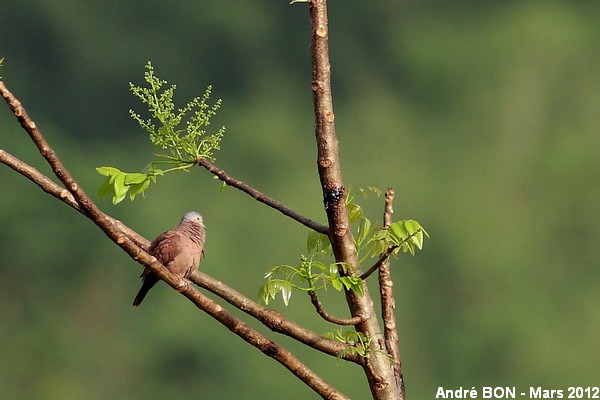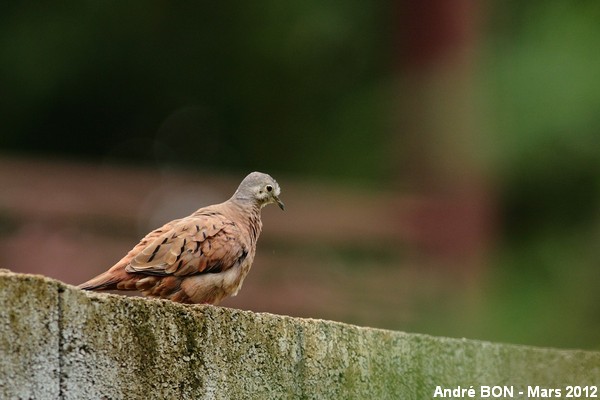

| Ruddy Ground Dove (Columbina talpacoti (Temminck, 1810)) |


|
|
Scientific name: Columbina talpacoti (Temminck, 1810) Common name: Ruddy Ground Dove French name: Colombe rousse Order: Columbiformes Family: Columbidae Size: Size: 16 to 18 cm; Weight: 40 to 57 g. Habitat: Woodland edges, open country, cultivated areas and urban areas. Food: The Ruddy Ground Dove essentially feeds on small seeds picked on the ground in bare places and occasionally on snails and insects. Nesting: Nesting occurs year round in the northern part of the range. It is restricted to the rain season in the south. The nest is a large cup located at a height of one metre or two above the ground inside dense vegetation. It is built by both adults. There are generally two eggs per brood. Migration: Mainly sedentary. Some observations, in winter, in the south-west of the United States, in Florida and in Central Chile make think that small populations may migrate. Geographic area: Central America and South America east of the Andes, from Mexico to Paraguay and northern Argentina. |
Male Ruddy Ground Doves show a pale blue-grey upper side of the head with a more pinkish face and throat. The upper side of the body is a bright rufous colour with black marks on the wings. The primary feathers are blackish. The bill is blackish-brown, the legs are pinkish. Females are a dull grey-brown colour with the same black marks. Rump and upper tail coverts are a brighter brown-rufous colour. |
| [To know more about the Ruddy Ground Dove] [Next picture] [Top] |

|
I have shot this picture in the village of Saül. This one is a male Ruddy Ground Dove with its typical colours. The bird is too far to be able to see the black marks on the wings. |
| [To know more about the Ruddy Ground Dove] [Previous picture] [Top] |

|
I have shot this picture in the village of Rémire-Montjoly. With this closer view you can see the small black spots on the plumage. |